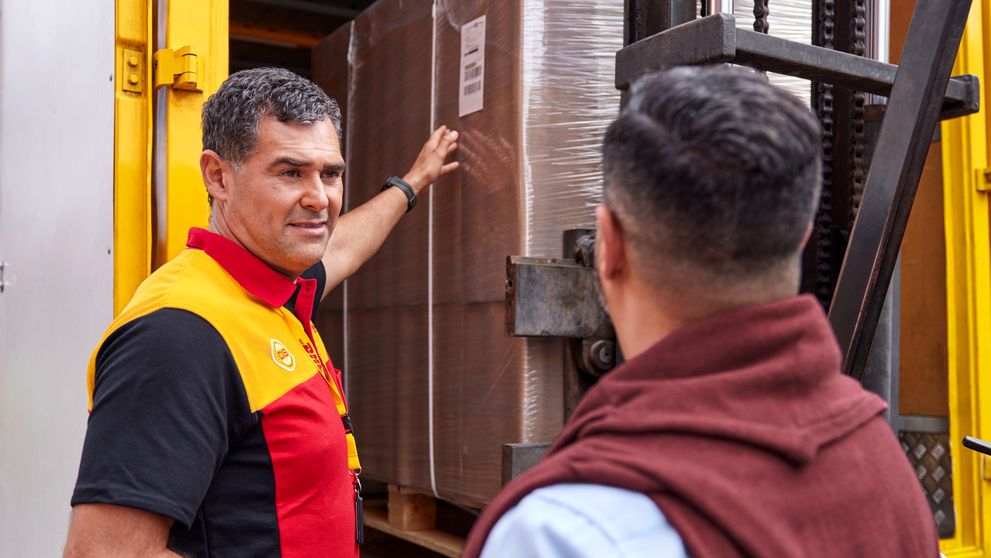As every e-commerce business knows, getting products to customers on time and in perfect condition is a priority. But what happens when something goes wrong? Shipping insurance can be invaluable when parcels go missing or sustain damage. For small businesses with tight profit margins, shipping insurance is a particularly important investment. Read on for our main tips.
What is shipping insurance?
Shipping insurance is an optional service that businesses can take out, so that they will be financially reimbursed if their shipments are lost, stolen or damaged. For small businesses and those which ship internationally in particular, it can provide a lot of reassurance. Covering 100% of the value of the shipment means the seller can confidently issue a new replacement shipment to their customer, at no extra – or minimal – cost.
What does shipping insurance cover?
Shipping insurance can cover everything from e-commerce goods to important documents like legal certificates. Different carriers will offer various insurance models, but generally offer compensation in the event of:
- Lost or misplaced goods
- Theft of goods
- Damage to the goods in transit
Typically, the cost of the insurance is linked to the value of the goods.
What is not covered by shipping insurance?
Shipping insurance generally will not cover the following occurrences:
- Damage caused by the parcel or its contents, such as the contents leaking
- Loss in weight or volume, wear and tear of the shipment
- Loss, damage or expense caused by insufficient or unsuitable packing or preparation of the shipment
- Loss, damage or expense attributed to the wilful misconduct of the customer or its agents
Do I need shipping insurance?
Whether or not you need shipping insurance is down to you. Are your goods high value? If one shipment goes missing, will it cause you financial pain? It’s worth bearing in mind that very few shipments will be lost or damaged. But if it does happen, shipping insurance provides financial cover and peace of mind for business owners.
Is shipping insurance worth it?
It depends on the value of your shipment. If your e-commerce business ships big-ticket items like electronics or furniture, the loss of revenue could be significant – so you should probably take out shipping insurance. Be sure to factor in the cost of shipping insurance to your budget sheet and margin projections. Shipping insurance is cheap because the risk of loss, damage or theft is very low.
Three advantages of using shipping insurance
If you're shipping goods, it's a smart idea to consider purchasing shipping insurance to protect your items. Here are three major reasons to take out shipment insurance.
No loss of revenue
For e-commerce businesses, especially those that deal with high-value goods, knowing you will receive 100% of the value of your lost goods is both reassuring and good business. It means you can confidently and quickly resend the goods to your customer in the event of a lost or damaged item. This means you don’t lose money or all-important customer confidence.Peace of mind
Customer satisfaction amongst online shoppers is heavily influenced by the shipping process. Poor delivery experiences caused by delays and damages can harm loyalty and damage your chances of repeat business. Providing shipping insurance protects both your bottom line and your reputation.
Hassle-free claims process
If something does go wrong with a shipment, having insurance means you can file a claim for reimbursement quickly and easily. When you choose a logistics partner with an efficient and reliable claims process, you can replace or refund orders promptly, providing a seamless experience for your customers.
Risks of shipping without insurance
Every logistics company tries to minimize risks and keep your shipment(s) safe, but sometimes accidents happen. Without shipping insurance, you’re exposed to the risk of:
- Your shipment being misplaced or lost in transit.
- Your shipment incurring damage in transit.
- Your shipment being stolen.
Again, the risks are low. Every day, DHL successfully delivers thousands of parcels without loss, damage or theft. But there are always edge cases, as with any large, complex global logistics operation.
How to file a claim for shipping insurance
You’ve shipped your product but the worst has happened: it’s been lost in transit or has been delivered damaged. Your first step is to contact our customer service team, who will start an investigation. Your claim must be submitted within 30 days of the date that your shipment was accepted by DHL. They will alert the relevant service points within our network to gather more information, including pictures and details pertaining to the case. You can expect an update on the findings approximately 3 working days.
Shipping insurance FAQs
How does shipping insurance work?
Shipping insurance is crucial for businesses that rely on shipping to get their products to customers. It provides an additional layer of protection for businesses against unexpected events that can sometimes happen during transportation.
Why do I need shipping insurance?
Without insurance, businesses are exposed to financial risks that can be costly and could result in severe damage to their reputation. For instance, if a business ships a high-value product without insurance, and it gets lost or damaged during transit, the business may have to bear the cost of replacing the product or refunding the customer. This could be a significant financial loss, particularly for small businesses. Shipping insurance provides businesses with a safety net that ensures they are covered against these risks.
How much is shipping insurance?
Shipping insurance with DHL Express varies by country, but usually starts at 3% of the package value. To find out exact rates, get in touch with our customer service team.
























